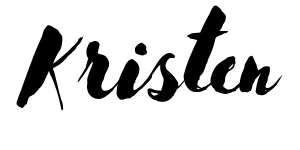Do you want to live longer, be happier and feel healthier? Scientists are now discovering that it’s the quality of our connections with other humans, not just what we eat and how much we exercise, that’s determining our health, happiness and wellbeing. We are wired to connect. We are nourished by each other. So how can we get better at human connection? We answer that question in each and every episode of The Synced Life.
I so enjoyed meeting this week’s guest because she’s a master at teaching people how to become really good at expressing gratitude, and I am mildly obsessed with the topic of gratitude.
Kelly Browne is the author of bestselling book 101 Ways to Say Thank You and 101 Ways to Say Thank You for Kids & Teens. She’s spoken around the country inspiring audiences to upgrade their thankfulness etiquette and in the process, helped thousands of people cultivate more gratitude in their lives.

Gratitude was a big theme for me this year, and as you’ll hear in the following conversation, I took on a big project nearly 365 days ago with one purpose: I wanted to feel more grateful. In my experience, gratitude is the opposite of entitlement and it’s the antidote to resentment and scarcity. It’s where we find generosity, humility and joy.
But as I learned from Kelly’s book, it’s one thing to feel gratitude and an entirely different thing to express it. I love this quote by William Arthur Ward: “Feeling gratitude and not expressing it is like wrapping a present and not giving it.”
KEY TAKEAWAYS
1. If you want to cultivate a sense of gratitude, don’t just stop at writing a gratitude list. Express your gratitude, verbally or in a thank you note, and your feeling of gratitude will expand immensely.
2. It’s easy to send a text or email but when you take the time to write out some heartfelt words to someone, you will touch their heart in a way that a digital ‘thank you’ simply cannot.
3. Expressing our appreciations expands our capacity for appreciation. You start to notice how wonderful life is and how amazing the people in your life are. Saying thank you is an act of mindfulness and presence.
4. You can be a light for others. In an instant, with just a few kind words, we all have the power to turn someone’s light on.
5. When we acknowledge those around us for the good they do, we can affect someone else’s behavior, causing a ripple effect that subconsciously encourages them to repeat that behavior. What we appreciate, appreciates.
6. Writing a thank you note lets you revisit a happy experience. When you write it, you are rewarded with the opportunity to re-experience what you’re grateful for.
7. Don’t be afraid to write with enthusiasm and to express your gratitude with glowing adjectives. Be over the top. Don’t hold back or feel like you need to be formal.
8. Add a compliment. Thank you notes give us the chance to say the things that we probably don’t get the chance to say, or maybe feel too awkward to say, in everyday life. But these loving and meaningful words give us the opportunity to express what we cherish and respect about the people we share this journey with.
9. Think about investing in a stationary wardrobe. Create a collection of paper and pens so that you have them on hand and ready to go so that you don’t put a thank you note off.
10. It’s what gets left unsaid that we regret. Writing a thank you note takes a small amount of time but it can have a huge impact.
SHARE & SUBSCRIBE
A big, huge thanks to Kelly Browne for being my guest this week! To connect with her and to learn more about her books, visit www.kellybrowne.net.
Until next time,
